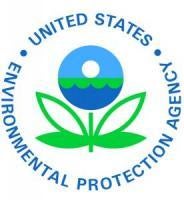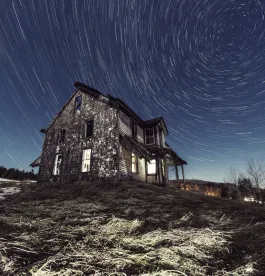Brownfields grants to transform and uplift communities, leverage jobs
WASHINGTON – At an event at a former brownfield site in Burlington, Vermont, U.S. Environmental Protection Agency (EPA) Administrator Gina McCarthy announced on May 20th the selection of 218 new grant investments totaling $55.2 million to 131 communities across the U.S. Recipients will receive approximately $200,000 - $820,000 in funding toward EPA cooperative agreements. The Assessment, Revolving Loan Fund and Cleanup (ARC) grants go to communities that are underserved and economically disadvantaged, including neighborhoods where environmental cleanup and new jobs are most needed.
“These grants will empower communities to transform idle, languishing lands into vibrant hubs for business, jobs, and recreation,” said EPA Administrator Gina McCarthy. “It’s all about providing that initial funding, and sparking that first conversation to set stalled sites on a path toward smart, safe redevelopment that directly benefits communities.”
The event highlighted progress made in cleaning up and redeveloping a formerly contaminated site in Burlington, the Maiden Lane project. Public and private investment in the site, including by ARC grant recipient Chittenden County Regional Planning Commission (CCRPC), led to the development of 28 housing units, including four affordable housing units. The CCRPC invested $38,000 in assessment funding from a previous assessment grant at the site, which leveraged private investment of more than $5 million.
EPA’s Brownfields Program strives to expand the ability of communities to recycle vacant and abandoned properties for new, productive reuses. The investments will provide communities with the funding necessary to assess, clean up and redevelop contaminated properties, boost local economies and leverage jobs while protecting public health and the environment. Brownfields ARC grants provide resources early on, which is critical for the success of communities’ abilities to leverage additional partnerships and resources. Partnerships between neighborhoods, local developers and governments are essential for impacted communities to acquire the resources needed to meet their revitalization goals.
Approximately $14 million of the assessment and cleanup funding will go to applicants who are also EPA Brownfields Area-Wide Planning grant recipients and Dept. of Housing and Urban Development (HUD)/Dept. of Transportation (DOT)/EPA partnership communities. Funding will help communities clean up and reuse brownfield sites to create community assets such as housing, recreation and open space, health facilities, employment, education, social services, transportation options, infrastructure and commerce opportunities. For example, Dubuque, Iowa’s new $200,000 cleanup grant will address contamination at the Blum property, a former scrap yard and recycling facility, and will lead to the development of a pocket park for residents of the distressed Washington Neighborhood within Dubuque. In addition to the benefits gained by creating more community spaces, this funding will also build upon Dubuque’s 2010 DOT TIGER grant and 2015 EPA Brownfields Area-Wide Planning grant which support the revitalization of the Washington Neighborhood.
Studies have shown that residential property values near brownfields sites that are cleaned up increased between 5 and 15 percent. Data also shows that brownfields clean ups can increase overall property values within a one-mile radius. Preliminary analysis of 48 brownfields sites shows that an estimated $29 million to $97 million in additional tax revenue was generated for local governments in a single year after cleanup. This is two to seven times more than the $12.4 million the EPA contributed to the cleanup of these brownfields.
This latest funding advances EPA’s broader commitment to making a visible difference in communities by focusing on coordinating federal investments to help environmentally overburdened, underserved, and economically distressed communities address local priorities. The Brownfields Program invests in communities where there are multiple federal agency partnerships at work. Aligning federal resources allows agencies to better meet communities’ needs and for communities to more effectively reap the benefits of collaborative investments. ARC grantees demonstrate a high level of preparedness to undertake specific projects, as they have firm commitments of leveraged funds to move projects forward. An impressive 70 percent of recipients have secured public and private resources which will directly align and further the efforts of proposed projects.
There are an estimated 450,000 abandoned and contaminated waste sites in America. Since the inception of the EPA’s Brownfields Program in 1995, cumulative brownfields program investments have leveraged more than $20 billion from a variety of public and private sources for cleanup and redevelopment activities. This equates to an average of $17.79 leveraged per EPA brownfields dollar expended. These investments have resulted in approximately 108,924 jobs nationwide. EPA’s Brownfields Program empowers states, communities and other stakeholders to work together to prevent, assess, safely clean up, and sustainably reuse brownfields sites.
List of the FY 2016 Applicants Selected for Funding: https://www.epa.gov/brownfields/brownfields-fy16-arc-grants-selected-funding
More on ARC grants: https://www.epa.gov/brownfields/types-brownfields-grant-funding
More on EPA’s Brownfields Program: https://www.epa.gov/brownfields
More on successful Brownfields stories: https://www.epa.gov/brownfields/brownfields-success-stories
This first appeared as a news release on the EPA website - Administrator McCarthy Announces $55.2 Million to Assess and Clean Up Contaminated Sites, Promote Economic Redevelopment Nationwide




 />i
/>i

